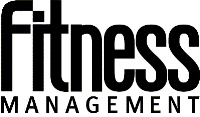
Ahem. I have an annoucement.
Attention fitness center managers! Your services are no longer needed. Please proceed in an orderly fashion toward the exit, and best of luck in your future professional pursuits.
If this announcement doesn’t fill you with joy — if, in fact, it makes you just the slightest bit angry — don’t shoot the messenger. I only realized fitness center managers were on their way out the door after reading an article about a new kind of manager — the non-human kind — making its debut in one of the largest chains in the business. 24 Hour Fitness, San Ramon, Calif., purchased RetailAction, a software application manufactured by Reflexis Systems Inc., Dedham, Mass., that promises to “boost operational productivity and consistently execute its corporate strategy in all of its more than 375 clubs in 14 states.”
24 Hour Fitness also believes its new, automated managers will actually help make members happier and more satisfied. “We are confident that integrating labor scheduling, task management and compliance management will enhance customer experience significantly at our clubs,” says Dan Benning, senior vice president of operations for 24 Hour Fitness Worldwide.
In light of the renewed focus on making fitness centers a hub of social activity that extends beyond sets and reps, am I alone in thinking that this is a strange step for an industry leader to take? How can a bunch of fitness center employees working at the beck and call of a computer effectively serve the needs of a notoriously unpredicatable group of fitness center members? Call me crazy, or just old-fashioned, but I have a hard time imagining a workforce happy to be micromanaged by a computer chip.



